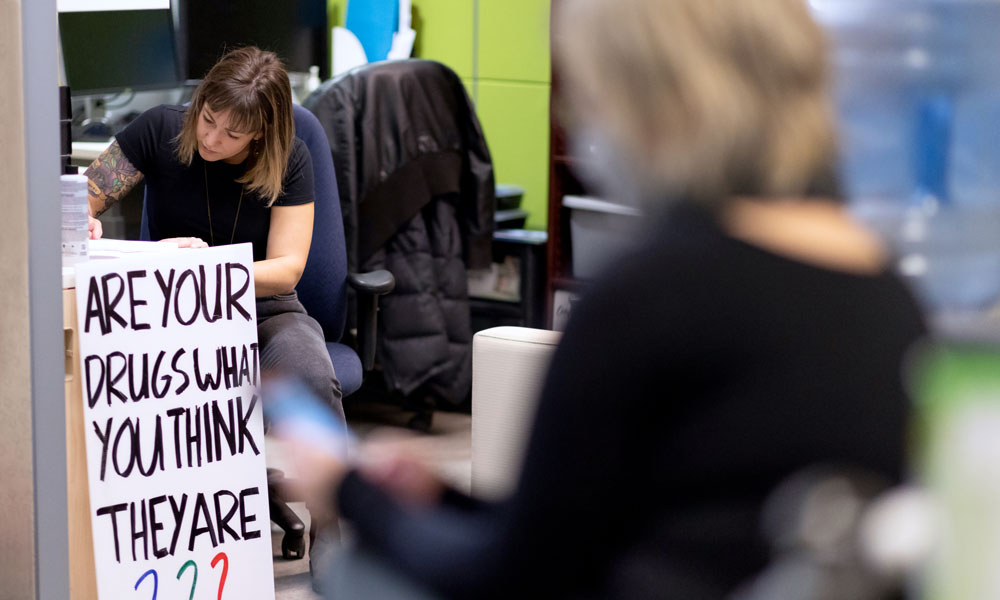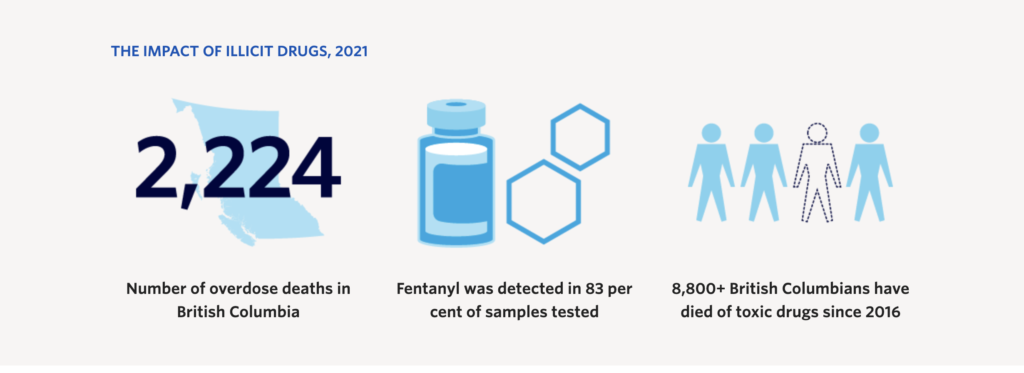
The drug-checking program run by the Harm Reduction Team (HaRT) at UBC Okanagan provided students with a safe space to test their drugs for toxic substances and to have conversations about safe drug usage. Established in late 2020 and supported by Interior Health, the BC Centre on Substance Use and the local community, the program enables students and community members to access harm reduction services for free on UBC’s Okanagan campus.
The program addresses a significant need for this type of service among UBC Okanagan students and other members of the community. In April 2016, British Columbia declared a public health emergency related to the toxic drug supply in the province. Since then, BC has consistently reported the highest toxic drug-related death rates in Canada, with the number of cases surging every year.

“We know there’s an incredible need for this service not only with the student community but in the Okanagan in general. We had to do a lot of innovative thinking with our partners since we were the first university to offer this kind of drug checking on a regular basis—during a pandemic no less,” says Lauren Airth, a doctoral student the UBCO School of Nursing and the team lead for HaRT. HaRT’s work is done by an interdisciplinary team consisting of doctoral, master’s and bachelor students from nursing, international relations, electrical engineering, medicine, computer science and social work.
Read the full story by visiting the UBC Okanagan News website.
Through Strategy 16: Public Relevance, UBC is working to ensure that the university’s academic and administrative efforts align closely with public priorities in British Columbia and beyond.